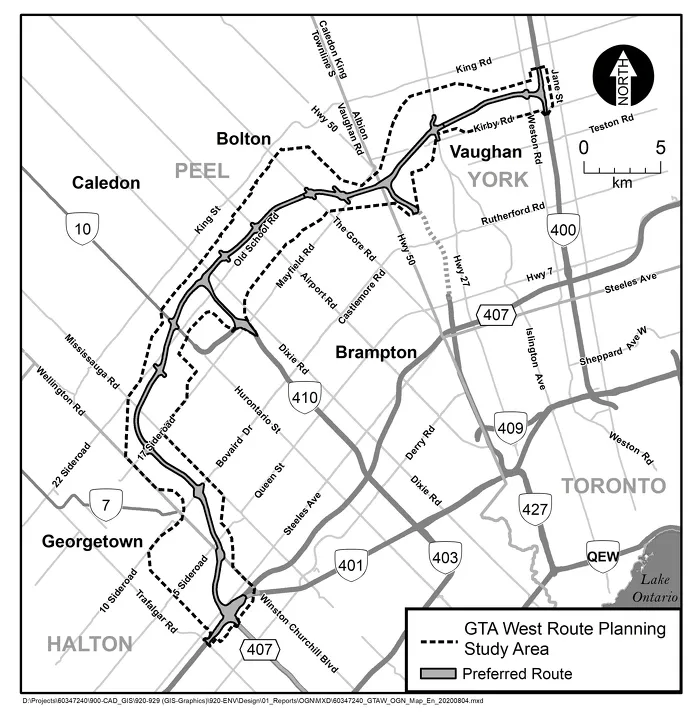A 400km road built specifically into the Canada’s isolated but mineral-rich Ring of Fire region could cost between US$204-$443 million, according to a government-funded study.
The road, entirely in the province of Ontario, would start in the port of Thunder Bay at the head of the Great Lakes and run northeast to the James Bay area, just south of Hudson Bay.
The region is named Ring of Fire after a proposed chromite mining and smelting development project. But a Ring of Fire development would likely impact the settlements of nine First Nations groups, as the indigenous people of Canada are called.
The Toronto newspaper Globe and Mail reported that it had obtained a copy of the 147-pagereport ahead of publication. The $600,000 All-Season Community Road Study looks at infrastructure development options, including rail lines as well as paved and unpaved roads, for the region should mining go ahead.
Access into and develop of remote area are often contentious issues in Canadian politics because of environment and cultural concerns. The Globe reported that the study involved discussions with four small, remote communities: Webequie First Nation, Eabametoong First Nation, Neskantaga First Nation and Nibinamik First Nation. Technical work was conducted by the Canadian engineering and construction firm SNC-Lavalin.
Some of the communities have no roads. Air travel, often float planes landing on lakes, would be the only access to the outside world. Roads would make it easier, especially for parents wishing to visit children who must move away to attend high school. Roads would reduce the cost of food and other goods from the south and also hook up similarly isolated communities.
However, some groups fear that more drugs and alcohol would reach the communities, the Globe reported.
International Railway Journal recently reported that Canadian mining company KWG Resources contracted China Railway First Survey and Design Institute Group to carry out a feasibility study for a multi-user railway linking mines in the Ring of Fire region. The line would connect with Canadian National Railway’s main cross-Canada east-west line that passes through the city of Winnipeg in the province of Manitoba, to the west of Ontario, and the Ontario city of Sudbury.
The 328km line will carry chromite from the Big Daddy and Black Horse deposits, which KWG subsidiary Canada Chrome Corporation has secured rights to exploit, IRJ reported.
Canada: Ring of Fire road debate heats up
A 400km road built specifically into the Canada’s isolated but mineral-rich Ring of Fire region could cost between US$204-$443 million, according to a government-funded study. The road, entirely in the province of Ontario, would start in the port of Thunder Bay at the head of the Great Lakes and run northeast to the James Bay area, just south of Hudson Bay.
September 6, 2016
Read time: 3 mins







